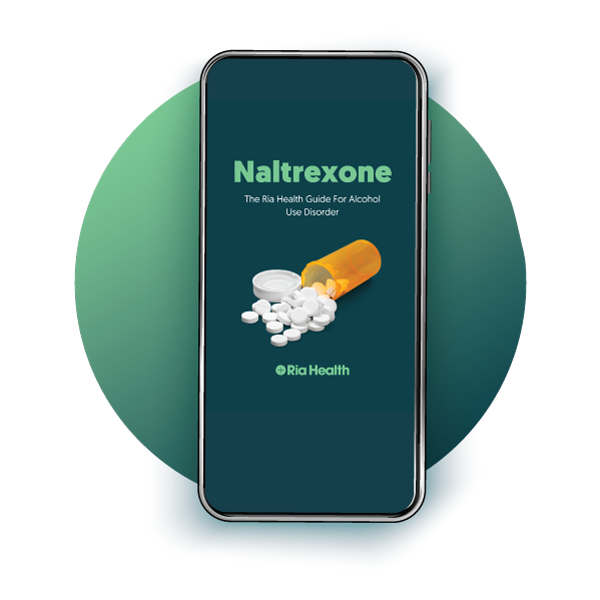Can Naltrexone Help with Weight Loss?
In the journey towards healthier living and weight management, the combination of naltrexone and bupropion, particularly when paired with regular exercise, emerges as a promising aid. Known for its role in alcohol addiction treatment, naltrexone, in conjunction with bupropion, a medication used to treat depression and aid in smoking cessation, offers a dual approach to weight loss.
This combination works on different areas of the brain to reduce hunger and enhance satiety, supporting individuals in achieving and maintaining weight loss goals. As we delve deeper into the potential of these medications, it’s important to consider their multifaceted benefits, especially for those already using naltrexone in their journey towards reducing or quitting alcohol consumption.
How does Naltrexone Contribute to Weight Loss?
Naltrexone aids in weight loss by targeting the brain’s pathways related to food cravings and addiction.
As part of the naltrexone-bupropion combination, naltrexone reduces appetite and increases feelings of fullness, thereby helping individuals consume fewer calories. This effect is enhanced when with bupropion, which also influences the brain’s reward and motivation pathways.
Together, they provide a comprehensive approach to weight management, and they are particularly effective when supported by lifestyle changes such as increased physical activity.
Read About: How Much Weight Will I Lose if I Stop Drinking Alcohol?
What Does Research Say About Naltrexone and Weight Loss?
Research on naltrexone and bupropion together for weight loss shows promising results.
Clinical trials have demonstrated that this combination, especially when accompanied by lifestyle modifications such as diet and exercise, leads to significant weight loss compared to placebo. Studies highlight the effectiveness of these medications in reducing body weight by influencing appetite and food cravings among obese patients.
This research supports the use of naltrexone and bupropion as a viable option for individuals struggling with weight management, and underlines the importance of a comprehensive approach that includes medication, diet, and physical activity.
For individuals not classified as obese, the effects of the naltrexone and bupropion duo might not be as significant, as trials have not extensively explored its impact outside of obese populations; consulting with a physician is recommended to assess its suitability for your specific health profile.

Download Our Naltrexone Guide
Learn more about Naltrexone by downloading our guide. Just enter your email address and we will send you a PDF file right to your inbox to download.
What Are the Potential Side Effects of Using Naltrexone for Weight Loss?
While the combination of naltrexone and bupropion has shown promise in aiding weight loss, it’s important for individuals to be aware of potential side effects associated with its use. Here’s a breakdown of common side effects attributed to each medication:
Common side effects reported in clinical trials include:
- Nausea (mostly associated with bupropion)
- Constipation (can be related to both medications)
- Headache (common with bupropion)
- Vomiting (more commonly linked to bupropion)
- Dizziness (can occur with both but is more frequently reported with bupropion)
- Insomnia (primarily related to bupropion)
- Dry mouth (often associated with bupropion)
These side effects are generally mild to moderate in severity and often decrease over time as the body adjusts to the medication.
Additional concerns:
- Increased blood pressure and heart rate (mainly associated with bupropion).
- Rare but serious side effects could include seizures, especially in those with a history of seizures or eating disorders. This risk is notably higher with bupropion due to its mechanism of action.
- The combination of naltrexone and bupropion carries a warning about the potential risk of suicidal thoughts and behaviors, reflecting concerns predominantly linked to bupropion, as it is also used as an antidepressant.
Given the range of potential side effects, consulting with a healthcare provider is crucial for individuals considering this treatment for weight loss. A physician can provide a comprehensive assessment to determine whether, in a specific case, the benefits of using naltrexone and bupropion outweigh the potential risks.
Weight Loss with Naltrexone & Bupropion During Alcohol Treatment
For individuals already using naltrexone as part of their alcohol treatment regimen, the combination of naltrexone and bupropion for weight loss introduces additional considerations.
Naltrexone is effective in reducing the cravings and rewards associated with alcohol consumption, playing a crucial role in alcohol dependence treatment. When combined with bupropion for the purpose of weight loss, it’s important to understand how this dual use may impact one’s overall treatment plan.
Key Considerations for Those Using Naltrexone for Alcohol Treatment:
- Enhanced Effects: The addition of bupropion to naltrexone may enhance the medication’s effectiveness in managing cravings, not just for alcohol but for food as well, due to bupropion’s effects on appetite suppression and mood regulation.
- Side Effects: As noted, bupropion carries its own set of side effects, including increased blood pressure, potential for seizures, and the risk of inducing suicidal thoughts and behaviors. Individuals already on naltrexone should be closely monitored for any adverse reactions or changes in mood or behavior when bupropion is introduced.
- Interactions with Alcohol: While naltrexone itself does not have adverse interactions with alcohol, the overall impact of adding bupropion on alcohol consumption patterns and cravings should be carefully evaluated. Bupropion may alter mood and behavior, factors that are integral to alcohol treatment success.
- Medical Supervision: It’s imperative for individuals using naltrexone for alcohol treatment to consult their healthcare provider before adding bupropion to their regimen. A healthcare provider can offer a tailored assessment, considering the patient’s history with alcohol treatment, current health status, and the potential benefits and risks of combining these medications for weight loss.
- Monitoring and Adjustment: Ongoing monitoring is essential to ensure the effectiveness of the treatment and to adjust dosages or strategies as needed. This includes tracking alcohol consumption patterns, weight changes, mood, and overall well-being.
While naltrexone and bupropion together can offer a new avenue for weight loss, individuals currently using naltrexone for alcohol dependence treatment need to proceed with caution. Collaborating closely with healthcare providers will ensure that any adjustments to treatment plans are made with a comprehensive understanding of the potential impacts, optimizing both alcohol treatment outcomes and weight management goals.
Conclusion
In summary, the combination of naltrexone and bupropion shows promise for weight loss, particularly in obese individuals, by reducing appetite and controlling cravings. While effective, it’s crucial to be mindful of potential side effects, especially for those using naltrexone for alcohol treatment.
The importance of medical guidance cannot be overstated in managing these medications’ effects and ensuring safety and efficacy.
If you’re dealing with alcohol dependence and considering medication-assisted treatment, we’re here to help. Contact us at Ria Health to explore how naltrexone can support your journey towards recovery and health.
Sources:
https://medlineplus.gov/druginfo/meds/a619020.html
https://www.ncbi.nlm.nih.gov/pmc/articles/PMC8314402/
Will insurance cover treatment? Verify Coverage
Have Questions? Call (800) 504-5360



